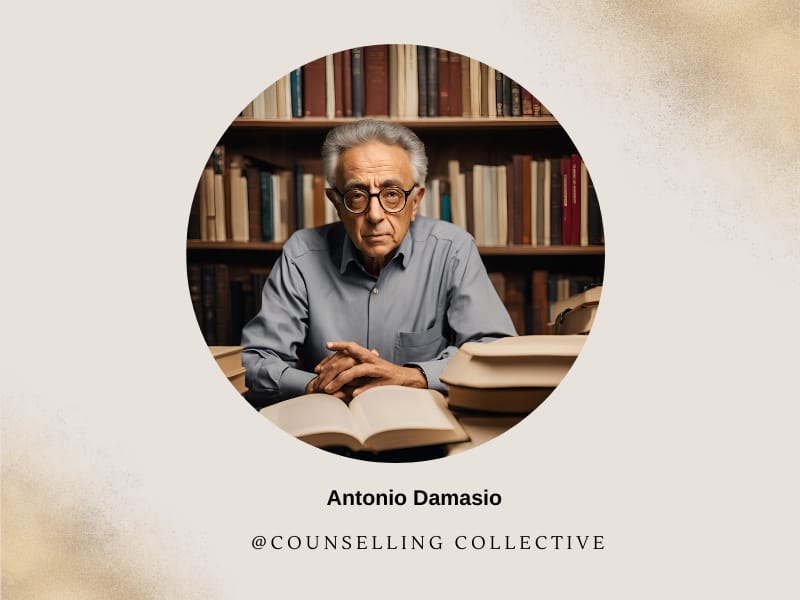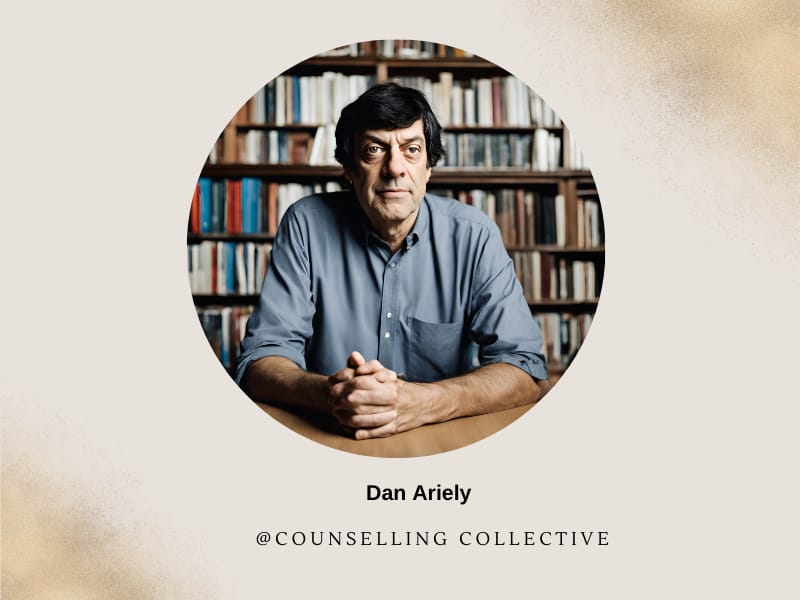Contents
Introduction
Joseph Renzulli is a prominent American educational psychologist renowned for his groundbreaking work in the field of gifted education and his development of the Three-Ring Conception of Giftedness. His innovative research has redefined how educators identify and nurture gifted students, focusing not only on intelligence but also on creativity and task commitment. Renzulli’s work has had a profound impact on educational psychology, particularly in shaping programs that promote enrichment and talent development for high-potential students. His influence extends globally, as his theories and practices have been widely implemented in schools and gifted education programs.
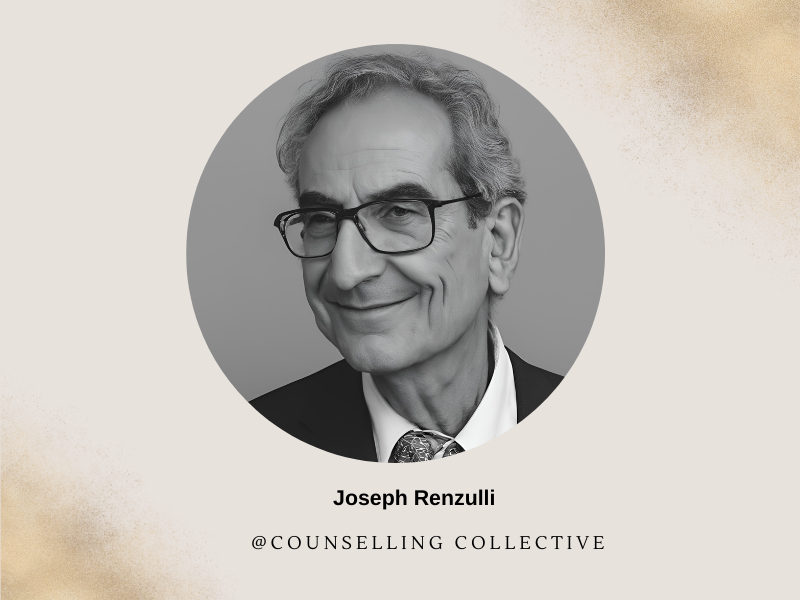
This article explores Renzulli’s life, his major contributions to educational psychology, and the lasting impact of his work on gifted education and talent development.
Early Life and Education
Joseph Renzulli was born in 1936 in Hartford, Connecticut, where he cultivated an early interest in human potential and the nurturing of unique abilities in students. This passion was fueled by his observations of how traditional intelligence measures, like IQ tests, often overlooked the diverse range of talents and skills that individuals could possess. Renzulli’s commitment to understanding and fostering giftedness led him to explore innovative educational strategies aimed at helping students achieve their full potential. His work has significantly influenced the fields of gifted education and talent development, emphasizing a broader definition of intelligence.
Image Source: pbn.com

Educational Journey
| Aspect | Details |
|---|---|
| Undergraduate Education | Renzulli earned a Bachelor of Science degree in psychology from Fairfield University, where he became interested in the cognitive development of students and potential identification. |
| Graduate Studies | He pursued a master’s degree in educational psychology from Rutgers University, focusing on how intelligence and motivation impact learning and student performance. |
| Ph.D. in Educational Psychology | Renzulli earned his Ph.D. from the University of Virginia, where he developed his theory of giftedness, focusing on how creativity, intelligence, and task commitment intersect to form high performance in students. |
| Academic Positions | Renzulli became a professor at the University of Connecticut, where he founded the National Research Center on the Gifted and Talented and continued his groundbreaking research on talent development. |
Influences and Early Career
| Aspect | Details |
|---|---|
| Educational Psychology | Renzulli’s work was influenced by pioneers in educational psychology such as Lewis Terman, whose research on intelligence testing inspired Renzulli’s interest in giftedness but also motivated him to redefine the traditional concepts of intelligence. |
| Creativity Research | Renzulli was also influenced by creativity research, particularly the work of E. Paul Torrance, whose studies on creative problem-solving inspired Renzulli’s exploration of how creativity plays a crucial role in the development of giftedness. |
| Humanistic Psychology | Renzulli’s ideas were shaped by humanistic psychologists like Abraham Maslow, who emphasized the importance of self-actualization, inspiring Renzulli to focus on nurturing students’ potential beyond traditional academic achievement. |
| Multiple Intelligences | Renzulli was inspired by Howard Gardner’s theory of multiple intelligences, which challenged the notion of a single type of intelligence, prompting Renzulli to consider broader criteria for identifying and developing giftedness. |
| Differentiated Instruction | Early in his career, Renzulli was involved in the field of differentiated instruction, which influenced his approach to creating educational programs that catered to students’ diverse needs, interests, and abilities. |
Major Theories and Work
Joseph Renzulli is best known for his Three-Ring Conception of Giftedness, which redefined the traditional understanding of giftedness by incorporating creativity and task commitment, alongside intelligence, as key components of high-level performance.
- Intellectual Ability: Renzulli acknowledged that intellectual ability is an important factor in giftedness but argued that intelligence alone is not enough to explain high achievement.
- Creativity: Renzulli emphasized that creativity is a crucial aspect of giftedness, defining it as the ability to generate novel and useful ideas. Creative thinking allows students to approach problems in innovative ways and contribute original solutions, which are essential for exceptional performance.
- Task Commitment: Renzulli’s theory also highlighted the role of task commitment, which he defined as the ability to maintain focus, perseverance, and motivation to achieve long-term goals.
Image Source: pilearning.org
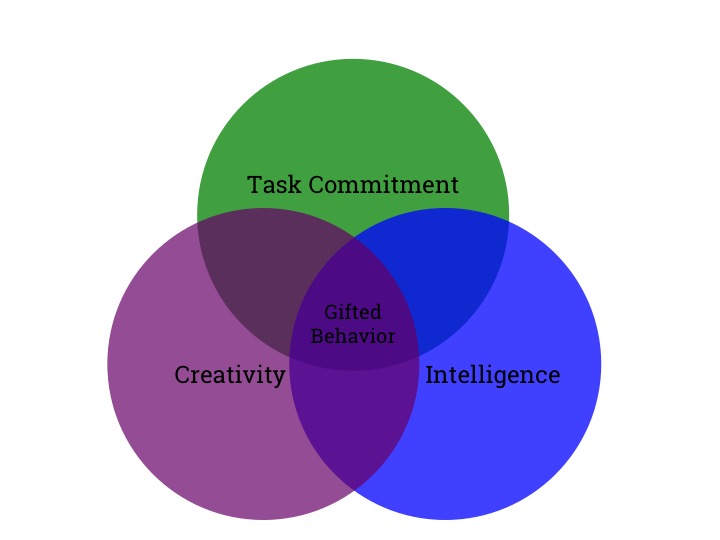
Three-Ring Conception of Giftedness
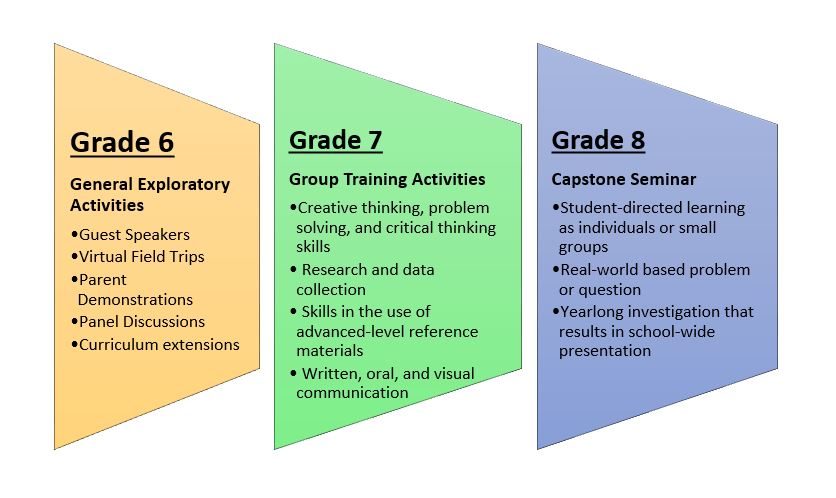
Schoolwide Enrichment Model (SEM)
Renzulli also developed the Schoolwide Enrichment Model (SEM), an educational approach designed to promote enrichment and talent development for all students, not just those identified as gifted.
- Type I, II, and III Enrichment: SEM is organized into three types of enrichment:
- Type I Enrichment: General exploratory activities that expose students to a wide range of topics, concepts, and experiences, designed to spark interest and curiosity.
- Type II Enrichment: Activities designed to develop students’ skills, such as critical thinking, creativity, and problem-solving abilities, through targeted instructional techniques.
- Type III Enrichment: Advanced activities where students apply their skills and knowledge to real-world problems, working on self-directed projects and engaging in authentic learning experiences.
- Talent Development for All: Renzulli’s SEM is grounded in the belief that every student has unique strengths and talents that can be nurtured.
Image Source: ms890.org
Famous Books and Publications
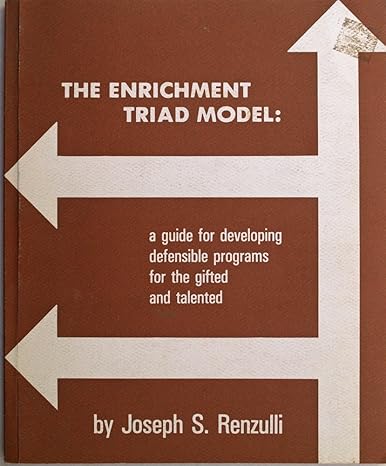
The Enrichment Triad Model 1977
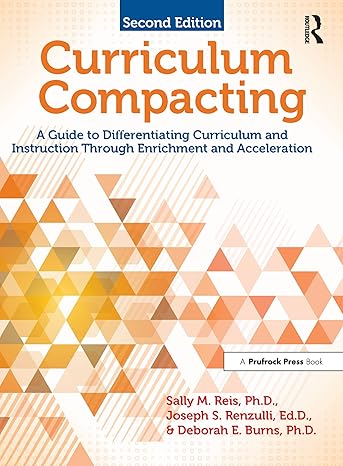
Curriculum Compacting
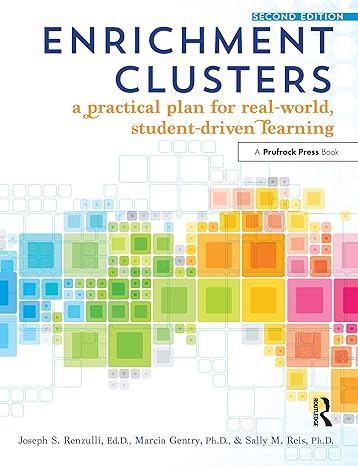
Enrichment Clusters
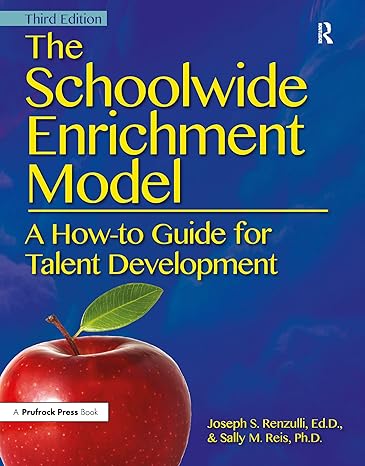
The Schoolwide Enrichment Model
Influence on Contemporary and Future Educational Research
- Gifted Education Research: Renzulli’s Three-Ring Conception of Giftedness has had a profound impact on gifted education research. His focus on creativity and task commitment, in addition to intellectual ability, has led to a broader understanding of giftedness, influencing how schools and researchers identify and support gifted students.
- Talent Development: Renzulli’s work has contributed to the growing field of talent development, which emphasizes the importance of nurturing students’ interests and abilities through enrichment opportunities. His ideas have led to the creation of enrichment programs in schools that aim to cultivate students’ talents across a wide range of fields.
- Differentiated Instruction: Renzulli’s research has influenced the practice of differentiated instruction, encouraging teachers to tailor their instructional strategies to meet the diverse needs of students. His work has inspired educators to create flexible learning environments that allow for personalized learning experiences.
- Creativity in Education: Renzulli’s emphasis on creativity as a key component of giftedness has inspired further research into the role of creativity in education. His ideas have led to a greater focus on fostering creative thinking skills in students, not just those identified as gifted, but across all educational levels.
- Holistic Approaches to Giftedness: Renzulli’s work has contributed to the movement toward more holistic approaches to identifying and developing giftedness. His theories have influenced schools to consider students’ social, emotional, and motivational factors, in addition to their academic achievements, when providing support and enrichment.
Psychologists and Educators Influenced by Joseph Renzulli
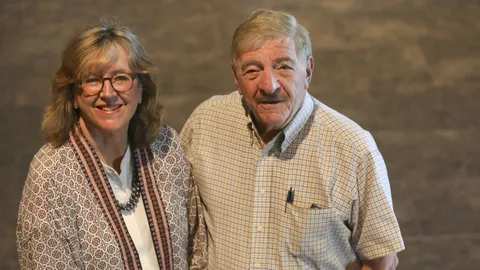
- Sally Reis: A frequent collaborator with Renzulli, Sally Reis has expanded on his work in gifted education and talent development. Together, they developed the Schoolwide Enrichment Model, which is widely used in schools to provide opportunities for students to explore their interests and develop their talents.
- Howard Gardner: Renzulli’s work on creativity and task commitment has influenced Howard Gardner, particularly in his development of the Theory of Multiple Intelligences. Both psychologists advocate for a broader understanding of intelligence that goes beyond traditional measures like IQ.
- E. Paul Torrance: Renzulli was inspired by Torrance’s research on creativity, and Torrance, in turn, was influenced by Renzulli’s emphasis on the role of creativity in giftedness. Their mutual focus on fostering creativity in education has shaped how schools approach gifted and talented education.
- Carol Ann Tomlinson: A leader in differentiated instruction, Tomlinson has drawn from Renzulli’s work in creating educational models that cater to the diverse learning needs of students. Her work on differentiated classrooms complements Renzulli’s focus on individualized learning and enrichment.
- Robert Sternberg: Sternberg’s Triarchic Theory of Intelligence, which emphasizes analytical, creative, and practical abilities, aligns with Renzulli’s view that giftedness involves more than just high intelligence. Sternberg’s work on developing human potential has been influenced by Renzulli’s holistic approach to education.
Impact on Psychology and Education
- Influence on Modern Thought: Joseph Renzulli’s exploration of giftedness and talent development has profoundly influenced how educators and psychologists understand and nurture high-potential students. His Three-Ring Conception of Giftedness broadened the traditional definition of giftedness, moving beyond IQ to incorporate creativity and task commitment. Renzulli’s work emphasizes that gifted behaviors can be nurtured in all students through opportunities for enrichment and self-directed learning, challenging the idea that giftedness is solely an inherent trait. His theories have reshaped how schools and educators approach the identification and development of talent, impacting a wide range of disciplines, including psychology, education, and cognitive development.
- Legacy and Recognition: Renzulli’s contributions have earned him numerous accolades in the fields of education and psychology, including the prestigious E. Paul Torrance Award for creativity and innovation in gifted education. He has also been recognized by the National Association for Gifted Children (NAGC) for his pioneering work in developing gifted education programs. His research has been widely implemented in schools and districts across the globe, ensuring that his legacy continues to influence gifted education and talent development for generations to come.
Conclusion
Joseph Renzulli’s groundbreaking work on giftedness and talent development has had a lasting impact on the field of educational psychology. By broadening the definition of giftedness to include creativity and task commitment, Renzulli provided educators with a more comprehensive framework for identifying and nurturing high-potential students. His Three-Ring Conception of Giftedness and the development of the Schoolwide Enrichment Model have transformed how schools approach enrichment and personalized learning, ensuring that his contributions to education continue to shape the future of gifted education and talent development.
Bibliography
- Renzulli, J. S. (1978). What Makes Giftedness? Reexamining a Definition. Phi Delta Kappan.
- Renzulli, J. S., & Reis, S. M. (1985). The Schoolwide Enrichment Model: A Comprehensive Plan for Educational Excellence. Creative Learning Press.
- Renzulli, J. S. (1994). Schools for Talent Development: A Comprehensive Plan for Total School Improvement. Creative Learning Press.
- Renzulli, J. S., & Reis, S. M. (2014). Enriching Curriculum for All Students. Corwin Press.
- Renzulli, J. S. (2016). The Three-Ring Conception of Giftedness: A Developmental Approach for Promoting Creative Productivity. Journal of Educational Psychology.
- Reis, S. M., & Renzulli, J. S. (2003). Curriculum Compacting: A Guide to Differentiating Curriculum and Instruction Through Enrichment and Acceleration. Prufrock Press.
- Renzulli, J. S., & Reis, S. M. (2000). The Schoolwide Enrichment Model: Implementing a Comprehensive Program for Gifted Students. Prufrock Press.
- Gardner, H., & Renzulli, J. S. (1993). Multiple Intelligences and Giftedness: Theory and Practice. Journal of Gifted Education.
- Sternberg, R. J., & Renzulli, J. S. (2005). Broadening Conceptions of Giftedness: The Contribution of Creativity and Task Commitment. Roeper Review.
- Renzulli, J. S. (2019). Talent Development as a Framework for 21st Century Education. Gifted Child Quarterly.

